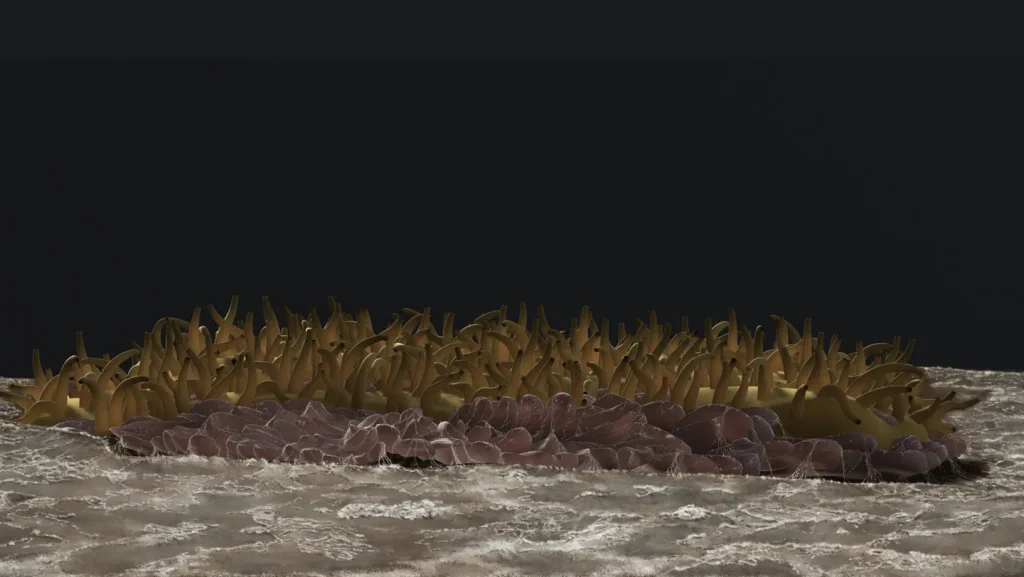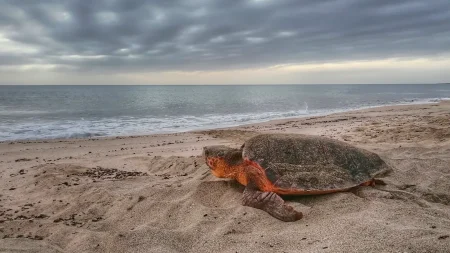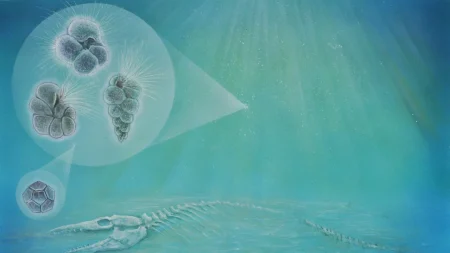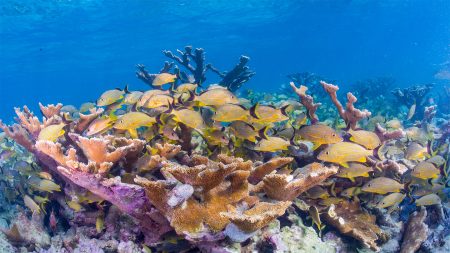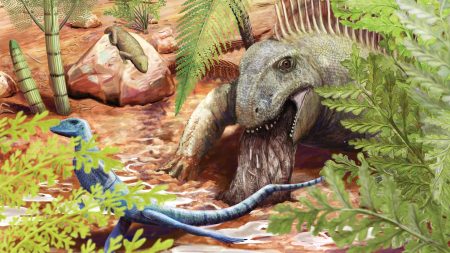From Punk Rock to Prehistoric Discovery: The Fascinating Journey of Lydonia jiggamintia
In a remarkable twist of scientific nomenclature, a once-dismissed fossil has been reclassified as one of Earth’s earliest animals and named after punk rock icon Johnny Rotten of the Sex Pistols. The newly christened Lydonia jiggamintia, previously considered mere decomposed seafloor matter, now stands as a potentially significant discovery in our understanding of early animal life, revealing that being misunderstood isn’t just the plight of punk rockers but sometimes of ancient creatures as well.
Paleontologist Christopher McKean and his research team conducted a detailed analysis of 39 fossils from the coast of Newfoundland, Canada, previously classified as “Blackbrookia” pseudofossils. These specimens, dating back approximately 560 million years, were found in an area ironically named Mistaken Point—a region famous for hosting some of the world’s oldest animal remains, including a 570-million-year-old jellyfish discovered in 2024. What initially appeared to be just decomposed organic matter has now been recognized as something far more significant: one of the earliest animals in the fossil record, potentially changing our understanding of prehistoric life forms.
Lydonia jiggamintia presents a striking appearance that indeed evokes the image of a punk rocker with an impressive hairstyle. The creature featured fingerlike tubes projecting vertically from pores on its upper surface, suggesting it was a filter feeder. Some specimens reached impressive lengths of nearly 53 centimeters, with a body rounded at one end and pointed at the other, likely topped with a domed upper structure that collapsed after death. The creature appears to have made its home atop other organisms, its shape potentially conforming to whatever lay beneath it. This unique structure, particularly its spongelike pores, provided the crucial evidence that convinced researchers they were looking at an animal fossil rather than decomposed organic material.
The fossil’s name carries dual significance beyond its scientific classification. While “Lydonia” pays homage to John Lydon (Johnny Rotten) of the Sex Pistols, “jiggamintia” honors the indigenous Beothuk peoples who inhabited Newfoundland thousands of years before European settlers arrived. The name references “jiggamint,” a spiky wild fruit known to the now culturally extinct Beothuk people (what we now call gooseberry). This thoughtful naming connects the ancient biological discovery to both contemporary cultural figures and the rich human history of the region where the fossils were found.
From a scientific perspective, L. jiggamintia appears structurally similar to modern sponges, potentially representing an ancestral form of these still-existing creatures. McKean, now at the University of Essex in England, notes that the spongelike pores were the key feature that helped researchers identify this as an animal fossil rather than just ancient organic remains. The significance of this reclassification cannot be overstated—Precambrian animal fossils are exceptionally rare, and discovering one with possible links to modern species provides valuable insights into evolutionary history and the development of early life forms.
This discovery exemplifies how science constantly revisits and reinterprets previous findings with new techniques and perspectives. What was once dismissed as “just piles of decomposing gunk” has now been elevated to one of the earliest known animals in the fossil record. Like the punk rock movement that challenged established norms, this reclassification challenges our understanding of prehistoric life and reminds us that significant discoveries often come from looking at the overlooked or misunderstood. The journey of Lydonia jiggamintia—from pseudofossil to potential evolutionary milestone—demonstrates that in both science and music, sometimes the most profound statements come from what was initially dismissed.





